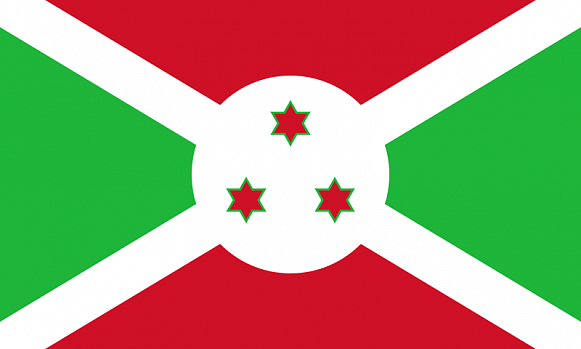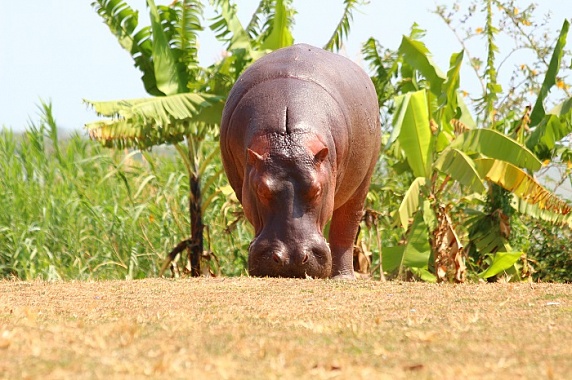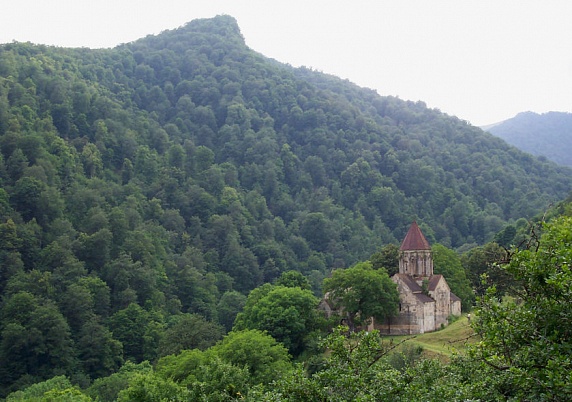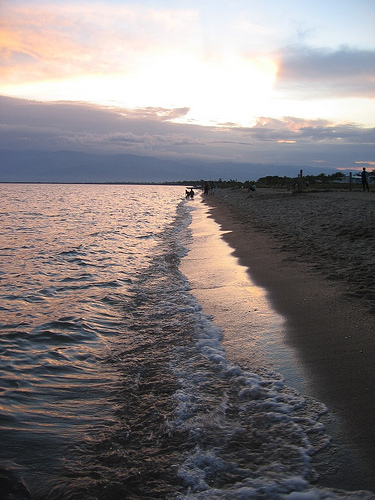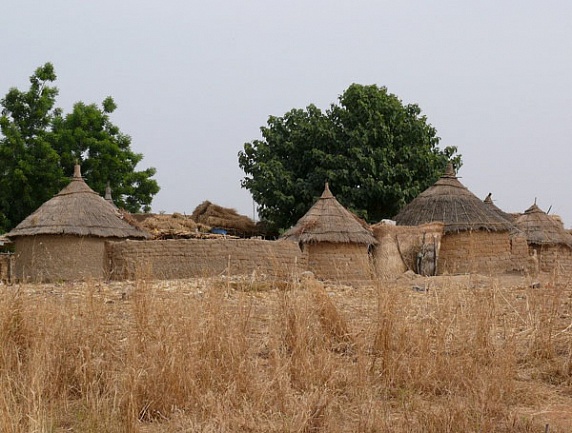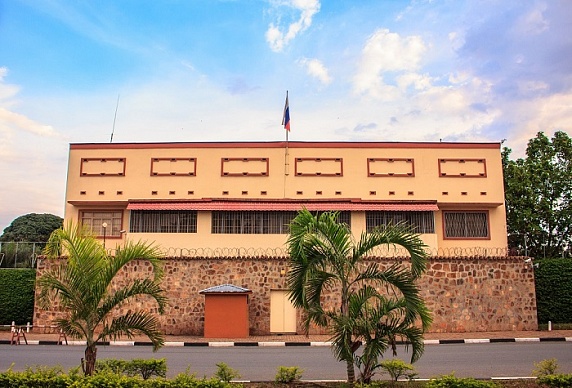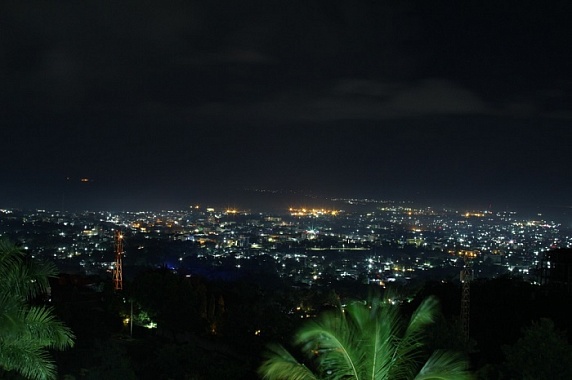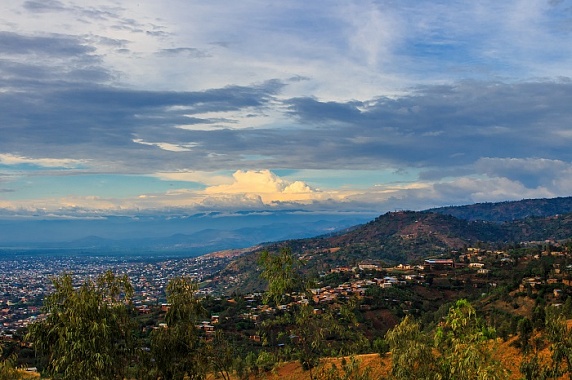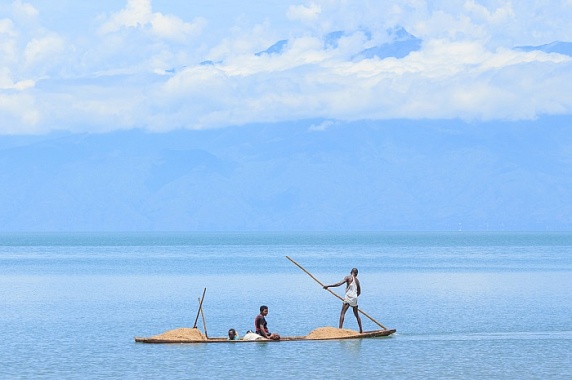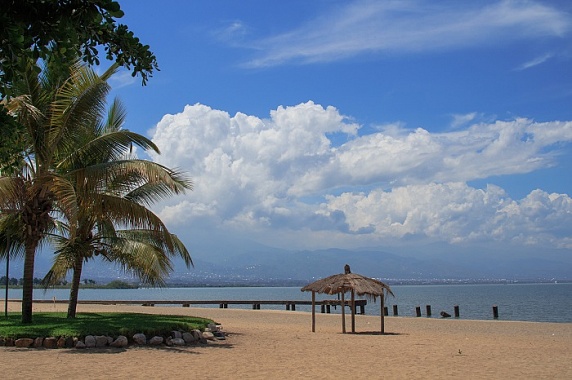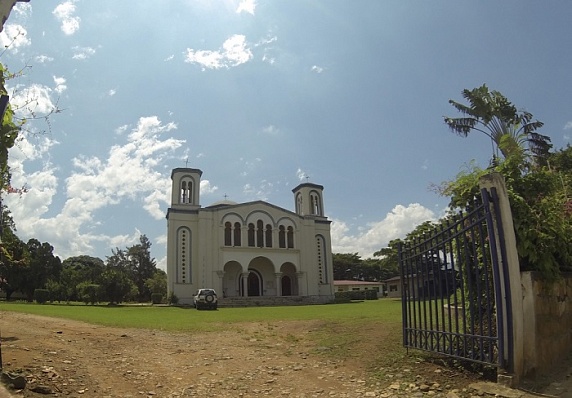 Республика Бурунди
Республика Бурунди
Foreign Minister Sergey Lavrov’s remarks and answers to media questions at a joint news conference following talks with Foreign Minister of the Republic of Burundi Ezechiel Nibigira, Moscow, November 5, 2019
Good afternoon,
The meeting with my Burundian colleague Ezechiel Nibigira took place in a warm and friendly atmosphere. We enjoy friendly relations based on the principles of international law, respect for mutual interests and deep historical sympathy that our peoples have for each other.
We praised the positive dynamics of our trade and economic relations. The figures are not too impressive yet, but they show significant growth: more than four-fold in the past three years. This corresponds to our mutual intent to bring our mutually beneficial business partnership to a new level, and today we have reaffirmed that. We have recently managed to launch an entire series of successful joint projects in manufacturing, mining and agriculture. Several Russian companies are operating in Burundi. In turn, a shop selling Burundian tea and coffee opened in Russia and is doing very well. We also agreed to maintain direct contacts between our business communities. The most promising areas of cooperation are interregional cooperation; in particular, there are good plans to develop an entire range of joint projects in Burundi involving the Republic of Mordovia.
Our Burundian colleagues have informed us about the steps taken by the country’s government in order to finally put an end to the existing domestic difficulties and about the preparations for the general elections, which will take place in May 2020.
In turn, we confirmed our steadfast position on respecting the sovereignty of Burundi. We believe it is inadmissible to interfere in the domestic affairs of this African country, and we confirmed that this will be our position when discussing issues related to the developments in Burundi at the UN, including its Security Council.
We talked a lot about cultural ties. Both sides praised the training of Burundian specialists at Russian universities. Including the Soviet era, over 4,500 Burundians have received education in Russia in total. Today, about 120 Burundians are studying humanitarian disciplines. Dozens of Burundians are studying at universities under the Defence Ministry, Interior Ministry and at courses under the Federal Security Service.
We also agreed to continue to offer internships for Burundian diplomats at the Russian Foreign Ministry’s Diplomatic Academy at the expense of Russia next year. In addition, next year new experts will be able to apply for corresponding courses. Today Mr Minister will have a meeting with Rector of the Diplomatic Academy Alexander Yakovenko.
We discussed the prospects for another new venture, the establishment of a National Crisis Management Centre in Burundi. We have received such request from Gitega’s officials. We have agreed to get down to this issue, to the practical parts of it, with the Russian Interior Ministry and the International Civil Defence Organisation.
We praised the results of the first Russia-Africa Summit held in Sochi on October 23–24. We are happy that our Burundian friends, as well as our other colleagues from which we received feedback, liked the organisation, details and results of this event.
We agreed to promote the implementation of the documents signed by Russia and the African Union, the Eurasian Economic Commission and the African Union Commission, thus adding new details to the comprehensive ties between Russia and Africa.
We discussed regional and international affairs. We have spoken in favour of the further development of cooperation with the UN and other countries to ensure compliance with the UN Charter and principles, including the unacceptability of interfering in others’ domestic affairs and respect for people’s right to choose their own path and model for development.
Burundi traditionally cosponsors the Russian Federation’s key initiatives at the UN General Assembly, including such documents as the unacceptability of glorifying Nazism, those on not placing weapons in outer space, the promotion of transparency and confidence-building measures in space and international information security.
Today we agreed to support the approval of a resolution on the 75th anniversary of the victory in World War II including an official meeting in New York in May 2020 at the UN General Assembly session.
We also exchanged opinions on collaboration at UN human-rights agencies. We expressed a common position here: We need to review specific cases without trying to politicise them or use the subject of human rights for interfering in the domestic affairs of sovereign states.
I would also like to note the following important fact. Today we confirmed the close coordination of our work at the Organisation for the Prohibition of Chemical Weapons (OPCW), to prevent attempts by some of our Western partners to erode the fundamental consensus-based foundations of this Convention, that have been manifested in the past 12 months, and to try and impose non-consensus approaches in the area of eliminating chemical weapons and ensuring complete chemical disarmament, and this runs counter to the letter and spirit of the Convention itself.
We also discussed many issues facing the African countries. Russia invariably proceeds from the need to respect the opinions of the Africans themselves and to draft approaches towards resolving various crises. This is how we will continue to approach the UN Security Council while discussing various hotspots on the African continent, including the Democratic Republic of the Congo, the entire African Great Lakes region, the Central African Republic, South Sudan and Mali.
Today, we discussed a Somalia peace settlement in great detail, and we praised the position of Burundi on this issue. I would like to note that over 4,000 peacekeepers from Burundi are serving in a proper manner with the African Union’s mission in Somalia. This is a substantial contribution to stabilising this important country, which is still torn apart by domestic disputes, and where terrorists, including organisations like Al-Shabaab, continue to consolidate their positions.
On the whole, I consider these talks to be very useful. I hope we will continue to make headway on the matters we discussed today for the benefit of our relations, countries and people.
Question (addressed to both ministers): The Burundian Minister of Public Security and Disaster Management recently spoke about the need for Russia and Burundi to exchange intelligence data on members of illegal armed groups. Does Burundi plan to join the FSB database of foreign terrorist fighters? Will Russia and the CSTO expand counterterrorism ties with Burundi?
Sergey Lavrov (speaking after Ezechiel Nibigira): Russia is interested in developing counterterrorism cooperation with all countries, including those in Africa. As I have said, we train foreign security personnel at the special centre of the Federal Security Service (FSB), including for the Burundian Ministry of Public Security. Today we discussed the FSB’s [International Counterterrorism] Database, which can be used to track foreign terrorist fighters in real time. Some 50 countries and international organisations, including Interpol, have access to it. We will provide our Burundian friends with materials from which they can learn how they can join this important international mechanism.
Question (addressed to Ezechiel Nibigira): The Russia-Africa Summit in Sochi raised some Western countries’ apprehensions concerning the full-scale return of Russia to Africa. One of the irritants is military technical cooperation. Mr Minister, what can you tell us about this?
Sergey Lavrov (adding after Ezechiel Nibigira): Those who are concerned about relations between other countries are prisoners of a neo-colonial mentality, when huge continents were considered certain countries’ domain that other countries were not allowed to enter. But all this has changed. Next year we will mark the 60th anniversary of the Declaration on the Granting of Independence to Colonial Countries and Peoples, adopted by the UN General Assembly in 1960. This Declaration has created modern Africa and modern independent African countries. The Declaration was co-initiated and co-authored by the Soviet Union. African countries remember who made a great contribution to their independence and liberation from the colonial yoke, and just as importantly, helped them acquire the basic foundations of statehood, such as security forces and basic national industries.
Therefore, I see no legal or moral reason for anyone to be worried if we and our African colleagues want to strengthen our cooperation.
Question: Some foreign media have reported that Russia and the United States have signed secret agreements on the northeastern regions of Syria and that the Russian military is allegedly entering the areas that US troops are leaving. Can you comment on this?
Sergey Lavrov: Frankly, I do not think that any agreement with the United States is possible today. I see no reason to look for secret motivations in the plans that were coordinated during the talks in Sochi between President of Russia Vladimir Putin and President of Turkey Recep Tayyip Erdogan in October. The memorandum they adopted is a perfectly clear document. All of the provisions are being implemented. As for the United States, first it said it would pull out of Syria. Then it said it was returning. And tomorrow it may again announce a withdrawal. It would be unconstructive and counterproductive to try to coordinate a long-term policy of normalising Syria and rebuilding its sovereignty and territorial integrity while keeping an eye on the inconsistent actions of a country that maintains its presence in Syria illegally in violation of international law.
I would like to point out again that the memorandum that President Putin and President Erdogan approved in Sochi is being implemented. The Russian military is working in close contact with the Syrian Army in a 30-kilometre buffer zone, from which the Kurdish self-defence forces have pulled back. The Russian military police and their Turkish colleagues are patrolling a 10-kilomere border line in the 30-kilometre buffer zone.
